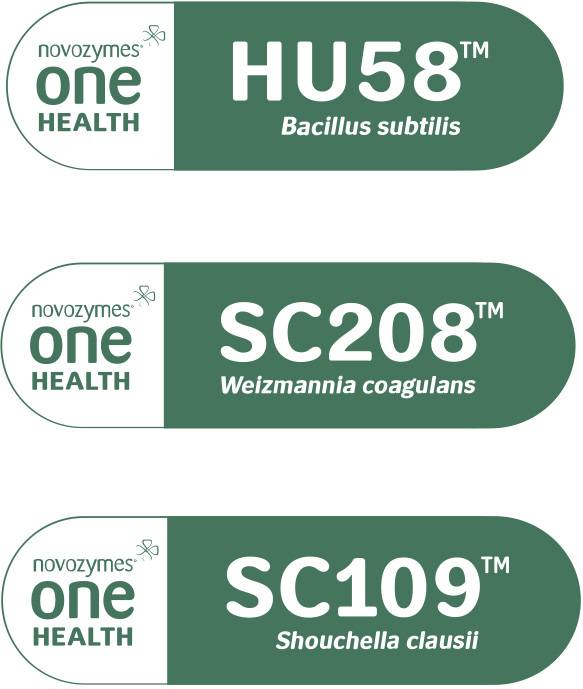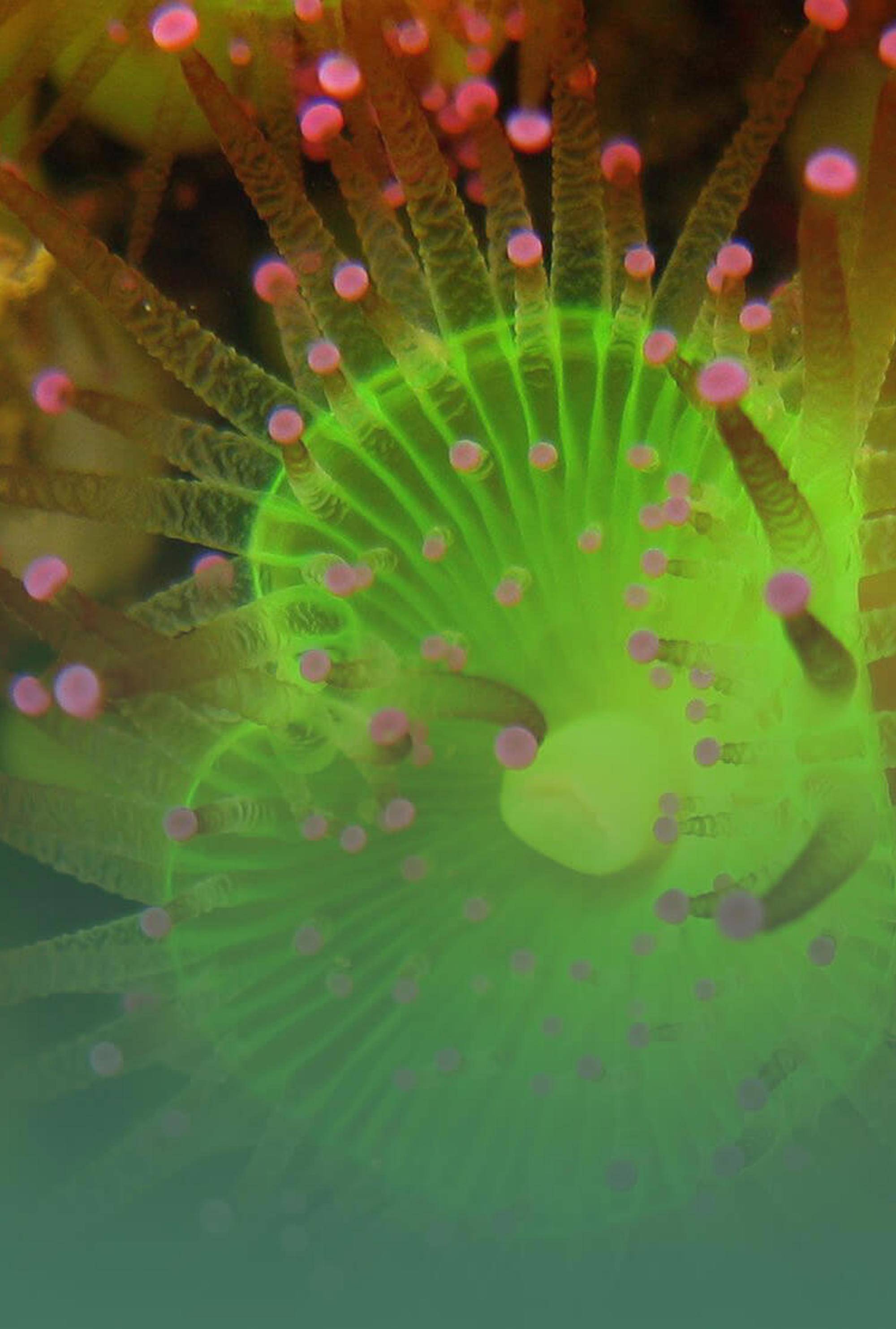- >
An invitation to create an aspirational solution
Probiotic Spores
Probiotic Spores
Strengthen your probiotic portfolio with true survivors; HU58™, SC208™ and SC109™
What if you could super charge your health products so that they thrive in harsh conditions and still deliver impressive health benefits? HU58™, SC208™ and SC109™ are three spore-forming probiotic ingredients that are truly designed by nature to survive. These powerful spore-formers can give your product an impressive digestive and immune health boost.
Unique spore-formers
Bacillus subtilis HU58™, Weizmannia coagulans SC208™, Shouchella clausii SC109™
What is a spore-former?
Spore-forming bacteria are a special type of microorganism that, when put under challenging conditions, can enter a dormant form called a ‘spore'. Like a real suit of armor, spores are very resilient and able to survive in a variety of harsh environmental conditions such as high temperatures, low pH levels, and harsh processing methods. This resilience makes spore-forming probiotics a preferred ingredient for dietary products because they are robust enough to survive the digestive tract, all the way to the intestines, where the bacteria are best able to deliver health benefits.
The secret of spore survival
Timing is everything when it comes to spore germination. In order to survive the harsh conditions of our digestive tract, these amazing bacteria can remain in a spore form until they reach the intestines. Once in the intestines, spores germinate, meaning they transform from a dormant state to an active state and unleash a plethora of benefits for your gut health and microbiome 1,2,3,4,5,15.
Designed by nature to survive
Proven gastric stability
HU58™ and SC208™ can survive the acidity of the stomach and make it to the intestines, where they become active and begin to deliver all of their goodness.
Safe and sound
All our probiotic spores are manufactured at a GMP-certified plant, which is NSF,GMP and FSSC 22000 certified.
Viability at the core
Probiotic spores are known to withstand harsh conditions, such as low pH, high temperatures and harsh processing methods4,14. In other words, our spore-formers are easy to work with – whether mixed in capsules, gummies, syrups or any format you can think of. It also means that the ingredients don’t need to be refrigerated, both during storage and transportation, this is not only helpful for manufacturers, but also consumers.
Classified as GRAS in US
and QPS status in EU
Each of our spore forming strains have been recognized as GRAS (Generally Recognized as Safe) by an independent panel of experts. In addition, our three unique spore-formers have a QPS status by the EFSA. This means that HU58™, SC208™ and SC109™ are recognized as safe and can be included in dietary products in the US and EU – two of the largest and most developed markets in probiotic dietary supplements.
Applications flourish with flexible formulations
Our three powerful spores can be formulated as a stand-alone input or in combination with other functional ingredients. Our team can assist you to meet the growing demand for products enriched with HU58™, SC208™ and SC109™.
Let's talk
At Novozymes OneHealth our business and culture are focused on creating deep partnerships to collaborate on unique products that make a real difference to the lives of consumers. Sound good? To find out more contact us.
References:
Marzorati M, Abbeele PVD, Bubeck SS, Bayne T, Krishnan K, Young A, Mehta D, DeSouza A. Bacillus subtilis HU58 and Bacillus coagulans SC208 Probiotics Reduced the Effects of Antibiotic-Induced Gut Microbiome Dysbiosis in An M-SHIME® Model. Microorganisms. 2020 Jul 11;8(7):1028. doi: 10.3390/microorganisms8071028. PMID: 32664604; PMCID: PMC7409217.
Marzorati M, Van den Abbeele P, Bubeck S, Bayne T, Krishnan K, Young A. Treatment with a spore-based probiotic containing five strains of Bacillus induced changes in the metabolic activity and community composition of the gut microbiota in a SHIME® model of the human gastrointestinal system. Food Res Int. 2021 Nov;149:110676. doi: 10.1016/j.foodres.2021.110676. Epub 2021 Aug 30. PMID: 34600678.
Cindy Duysburgh, Pieter Van den Abbeele, Kiran Krishnan, Thomas F. Bayne, Massimo Marzorati, A synbiotic concept containing spore-forming Bacillus strains and a prebiotic fiber blend consistently enhanced metabolic activity by modulation of the gut microbiome in vitro,
International Journal of Pharmaceutics: X, Volume 1, 2019.Permpoonpattana, et al. Beneficial Microbes, June 2012; 3(2): 127-135
Huynh A. Hong, et al. Research in Microbiology, Volume 160, Issue 6, 2009, Pages 375-379
Fajardo-Cavazos P, Nicholson WL. Shelf Life and Simulated Gastrointestinal Tract Survival of Selected Commercial Probiotics During a Simulated Round-Trip Journey to Mars. Front Microbiol. 2021 Oct 7;12:748950.
Dr Dilip Mehta, de Souza A, Jadhav SS, Devale M (2020) “A Study of Probiotic Bacillus subtilis HU58 for the Management of Antibiotic-Associated Diarrhoea in Adults”, The Indian Practitioner, 73(4), pp. 22-28.
Huang JM, La Ragione RM, Nunez A, Cutting SM. Immunostimulatory activity of Bacillus spores. FEMS Immunol Med Microbiol. 2008 Jul;53(2):195-203.
Simon M. Cutting, Ezio Ricca, Bacterial spore-formers: friends and foes, FEMS Microbiology Letters, Volume 358, Issue 2, September 2014, Pages 107–109.
Bernardeau M, Lehtinen MJ, Forssten SD, Nurminen P. Importance of the gastrointestinal life cycle of Bacillus for probiotic functionality. J Food Sci Technol. 2017 Jul;54(8):2570-2584. doi: 10.1007/s13197-017-2688-3. Epub 2017 May 23. PMID: 28740315; PMCID: PMC5502041.
Perez-Fons L, Steiger S, Khaneja R, Bramley PM, Cutting SM, Sandmann G, Fraser PD. Identification and the developmental formation of carotenoid pigments in the yellow/orange Bacillus spore-formers. Biochim Biophys Acta. 2011 Mar;1811(3):177-85. doi: 10.1016/j.bbalip.2010.12.009. Epub 2011 Jan 5. PMID: 21215325.
Dound YA, Jadhav SS, Devale M, Tom Bayne, Kiran Krishnan, Mehta DS (2019) “The effect of Probiotic Bacillus subtilis HU58 on Immune function in Healthy Human”, The Indian Practitioner, 70(9), pp. 15-20.
Xiong RG, Zhou DD, Wu SX, Huang SY, Saimaiti A, Yang ZJ, Shang A, Zhao CN, Gan RY, Li HB. Health Benefits and Side Effects of Short-Chain Fatty Acids. Foods. 2022 Sep 15;11(18)
Keller, David & Farmer, Sean & McCartney, Anne & Gibson, Glenn. (2010). Bacillus coagulans as a probiotic. Food Science & Technology Bulletin: Functional Foods. 7. 103-109. 10.1616/1476-2137.16015.
Setlow P. Germination of spores of Bacillus species: what we know and do not know. J Bacteriol. 2014 Apr;196(7):1297-305. doi: 10.1128/JB.01455-13. Epub 2014 Jan 31. PMID: 24488313; PMCID: PMC3993344.
Huynh A. Hong, Le Hong Duc, Simon M. Cutting, The use of bacterial spore formers as probiotics, FEMS Microbiology Reviews, Volume 29, Issue 4, September 2005, Pages 813–835.



